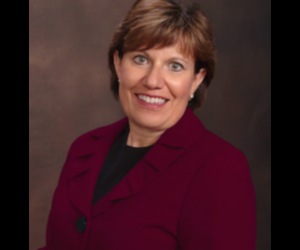Headaches and Hormones
Most Headaches Seen By Primary Care Physicians Are Migraines
Ninety percent of patients who see their Primary Care Physician (PCP) for a headache are there because of a migraine headache. Further, almost 30% of patients in a PCP’s waiting room are there because of migraines, even though half of patients with migraine are undiagnosed. The fact is, 27.9 million Americans experience migraines, and women get them between 3 and 4 times as often as men do.
Migraines Have many Underlying Causes
The pain of migraine occurs when brain cells trigger the trigeminal nerve, which then releases irritating chemicals that cause blood vessels on the surface of the brain to swell. These swollen blood vessels send pain signals to the brainstem, an area of the brain that processes pain information. The person with an inherited lower threshold for trigeminal nerve activation may get a migraine from many possible causes, including such factors as: disrupted sleep, hormonal swings, missed meals, dietary triggers, barometric pressure changes, stress, lights, and odors. Her migraines may also be maintained from overuse of her acute medications.
In Treating Migraine, Begin With A History
First, determine if your patient’s headache is a migraine. To classify as a migraine, the headache must include two of the following:
1. Unilateral
2. Pulsating
3. Moderate to severe pain
4. Aggravation by movement
Plus either:
1. Nausea &/or vomiting
2. Photophobia & phonophobia
Next determine if her headaches are episodic or chronic. Migraines are episodic if your patient has 14 or fewer headache days per month. However, if she experiences headaches on more than 14 days per month, and 8 would reach criteria for migraine, her migraines are chronic. If her migraines are chronic, your immediate therapy goal is to address the causes that are making the migraines chronic. Often these causes are non-restorative sleep and medication overuse. Both are treatable.
By the way, many women have had migraines for so long that an individual may not fully understand what you mean when you ask about pain-free days. There may be low-level background pain that she takes for granted. To help with communication, I tell her, “A pain-free day means you are no more aware of your neck, face, or head than you are of your middle left toe.”
Help Your patient Get Off The Cycle Of Medication – Caused Migraines
If your patient is routinely treating more than two days a week, she has likely developed medication-overuse headaches (MOH), the secondary headache disorder that develops as a consequence of regular overuse of acute headache medication for more than 3 months.
To help break the rebound cycle, she’ll need to cut back sharply on their use. This will be an uncomfortable time for her. One short-term strategy is to have her mix up the medications she uses. She might initially try interspersing triptan use (limited to 2 days a week) with another 2 days a week of a potent NSAID.
Hormonal Migraines Can Be Successfully Treated
The menstrual drop in estradiol levels triggers hormonal migraines. Menstrual-related migraine (MRM) occurs in a 5-day window. This window spans from 2 days before the onset of menstruation through the third day of bleeding. Knowing that the trigger is the luteal phase drop in estrogen, therapy consists of either eliminating that drop or minimizing it to a 10g EE decline or less. This can be accomplished with extended-cycle dosing of her combined hormonal contraceptive or with only a couple of the newer contraceptive options. Most combined hormonal contraceptives will either intensify MRM or leave it unchanged; only a very few will prevent it.
Search Articles
Latest Articles
Healing Ukraine’s Hidden Wounds: AI and Women’s Organizations Offer Hope
https://foreignpress.org/journalism-resources/healing-ukraines-hidden-wounds-ai-and-womens-organizations-offer-hope Publication –foreignpress.org
Who’s Leading the Digital World? Surprise—It’s Estonia
https://foreignpress.org/journalism-resources/whos-leading-the-digital-world-surpriseits-estonia Publication –foreignpress.org
United Nations Women’s Peace & Humanitarian Fund Launches Global Luminary Campaign With Advocate Kristen Bell
https://jameslanepost.com/united-nations-womens-peace-humanitarian-fund-launches-global-luminary-campaign-with-advocate-kristen-bell/02/17/2025/Hamptons-News-Happenings Publication –jameslanepost.com
A Breakthrough in Schizophrenia Treatment
https://foreignpress.org/journalism-resources/a-breakthrough-in-schizophrenia-treatment Publication –foreignpress.org
Subscribe to Updates
About Author

Mitzi Perdue is the widow of the poultry magnate, Frank Perdue. She’s the author of How To Make Your Family Business Last and 52 Tips to Combat Human Trafficking. Contact her at www.MitziPerdue.com
All Articles
Volatile Markets? Try Non-Correlated Investments
Volatile Markets? Try Non-Correlated InvestmentsAt a recent meeting of the Ritossa Family Office Summit in Dubai, Jagdeesh Prakasam said something that caught the attention of the several hundred investors who were listening to him. He said that by using artificial...
Family Governance Issues: Are You Struggling with Them
Family Governance Issues: Are You Struggling with ThemFamily businesses resemble countries in at least one key way. When you get the governance right, people have a chance at prospering and thriving. If you get it wrong, the result can mean unending distress. Babetta...
Family Businesses, a Unique Treasure to Their Communities
Family Businesses, a Unique Treasure to Their CommunitiesOlivier de Richoufftz from the Family Business Foundation knows something you probably don’t know about the Michelin Tire Company. This company contributes something of amazing and irreplaceable value to its...
What Coaching can do for you
What Coaching Can Do For YouKaren Snyder founded Concordia Consulting 27 years ago. Through her work, she helps senior executives and their teams achieve extraordinary results by working collaboratively. What has Karen learned in those 27 years that can help all of...
Entrepreneurs in the Family Business: Without Them, You’re at Risk!
Entrepreneurs in the Family Business: Without Them, You're at Risk!Entrepreneurship is essential for a family business to thrive. According to Bobby Stover, EY Americas Family Office Leader, “A family business that doesn’t find new opportunities is a family business...
Chad Naylor’s Investments and His Not-So-Secret Sauce
Chad Naylor’s Investments and His Not-So-Secret SauceBy Mitzi Perdue Chad Naylor from Naylor & Company Investments, LLC has an investment thesis that’s enabled him to make some extraordinary profits. Since the company’s founding over 14 years ago, their...






